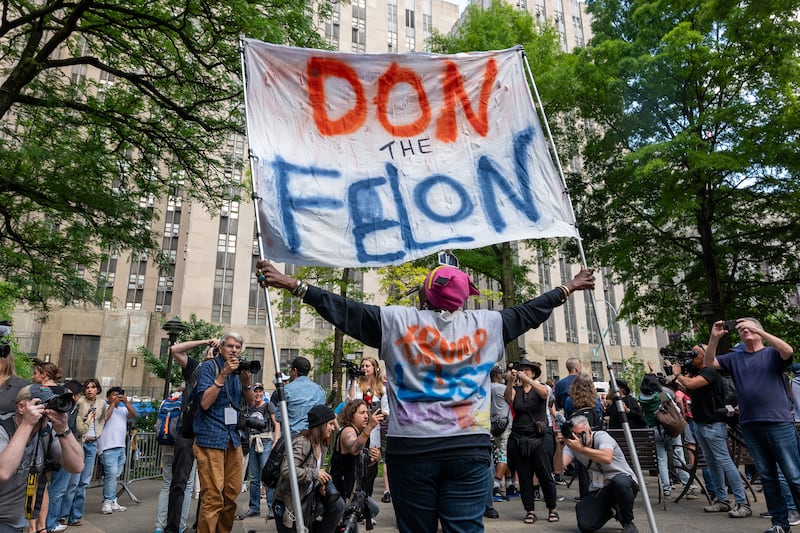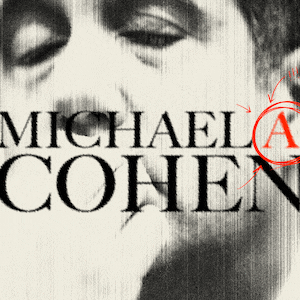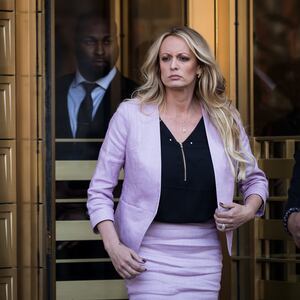On July 11, four days before he accepts the Republican nomination for president, Donald Trump will be in a New York City courtroom to learn his sentence for the 34 felony offenses of which he was found guilty last month.
Justice Juan Merchan, who has presided over the case and has been the target of Trump’s near-constant attacks, will face a historic choice: to sentence the former president to jail time or a lesser punishment, like probation or community service. Merchan should choose the former.
The reason is simple: Trump’s behavior before, during, and after the trial has not only undermined the integrity of the criminal justice system, it risks creating a clear double standard in how criminal defendants are treated.
It’s important to note, at the outset, that 77-year-old first-time offenders rarely receive jail time for a nonviolent offense like the crime for which Trump was convicted: falsifying business records.
However, rare does not mean never—and Trump’s crimes are anything but ordinary.
As Norm Eisen, who looked at close to 10,000 prosecutions for falsifying business records in New York, has noted, “In the most serious of the cases, about 10 percent of the total, incarceration was imposed.”
And there is little question that Trump’s crimes, which involved multiple misdeeds and played out over a year, qualify as a serious offense.
By covering up his affair with a porn star, Trump attempted to deny the electorate critical information and, in the words of prosecutor Joshua Steinglass, “pull the wool over [the] eyes [of voters] in a coordinated fashion.” His actions were a fundamental and illicit attack on democracy.
Trump’s efforts to keep the Stormy Daniels story out of the news might have affected the final results of the 2016 election—and there’s little question that the outcome of the presidential race directly impacted the lives of every single American citizen.
For example, how many Americans would be alive today if Hillary Clinton had been commander-in-chief in 2020 when the COVID-19 pandemic hit, rather than a president who covered up the deadliness of the coronavirus, refused to wear a mask in public, ignored rules on social distancing, and promoted discredited medical treatments?
But there is another even more serious issue that requires Judge Merchan to impose the maximum penalty on Trump: his open contempt toward the criminal justice system.

Donald Trump speaks during a Turning Point PAC town hall at Dream City Church on June 6, 2024, in Phoenix, Arizona.
Justin Sullivan/Getty ImagesBefore and during Trump’s trial, he was held in contempt of court on 10 separate occasions—and, in the process, demonstrated disrespect toward the court that would have landed practically any other criminal defendant in jail. He attacked Judge Merchan and members of his family, even openly suggesting that the judge “hated him” and that his animus toward Trump was informed by his Latino background. Trump also used his Truth Social feed to attack witnesses as well as the families of the prosecutors.
During the trial, he was admonished by the Merchan for “cursing audibly” and “shaking his head visually,” which said the judge “has the potential to intimidate the witness and the jury.” According to one attorney I spoke to, “Actively cursing during a witness testimony is an awesome way to watch that testimony from a jail cell.”
But Trump, who was told by Merchan that “the last thing I want to do is put you in jail,” escaped Rikers Island. We don’t have to guess the reason. As Merchan said in court, it was because Trump was “the former president of the United States and possibly the next president as well.”
For all of Trump’s unending complaints about selective prosecution, there’s little doubt that he has directly benefited from his status.
A defense attorney with whom I spoke (and preferred to remain anonymous) has had cases before Judge Merchan. He said to me, “What happens when my client goes on social media and goes after a judge or a judge’s family electronically? Does he or she get a pass because Trump got away with it? No way, but we will be banging the table.”
“To me, that has been a big concern throughout the trial. I have 10 open cases in the courthouse right now. If my client wants to mouth off, what’s to stop it? Whatever Trump’s sentence is, he goes away, and he leaves a damaged system behind without a care for what he caused.”

People celebrate after former President Donald Trump was found guilty on all counts at Manhattan Criminal Court on May 30, 2024, in New York City.
Spencer Platt/Getty ImagesIf Judge Merchan lets Trump get away with threatening the court, violating multiple gag orders, and ceaselessly attacking the integrity of the criminal justice system, it risks creating a virtual open season for other defendants to do the same thing and would make it far more difficult for judges to rein in such excesses.
But it’s Trump’s behavior after his felony conviction that is perhaps the best argument for incarcerating the former president. Trump and his allies have practically fallen over themselves in denigrating the criminal trial that decided his fate.
He has baselessly said that the trial was rigged against him, lied about Merchan’s ruling, and claimed that “This is all done by Biden and his people,” an assertion for which there is simply no evidence. And he has demonstrated no remorse for his actions, as he continues to argue that he did nothing wrong and committed no crime.
Even more ominously, Trump’s allies are unabashedly promoting their plans to take revenge on Manhattan District Attorney Alvin Bragg, including potentially seeking to imprison him. Not surprisingly, Trump has made no effort to tell his supporters to knock it off with such inflammatory rhetoric.
Trump’s behavior demonstrates a fundamental disrespect for the criminal justice system, a contempt for the rule of the law, and compelling evidence that a felony conviction without incarceration will not lead to a real change in his behavior.
Sending a former president to jail would be a momentous decision and one that would only exacerbate the country’s deep divisions, but the integrity of the justice system deserves nothing less.










